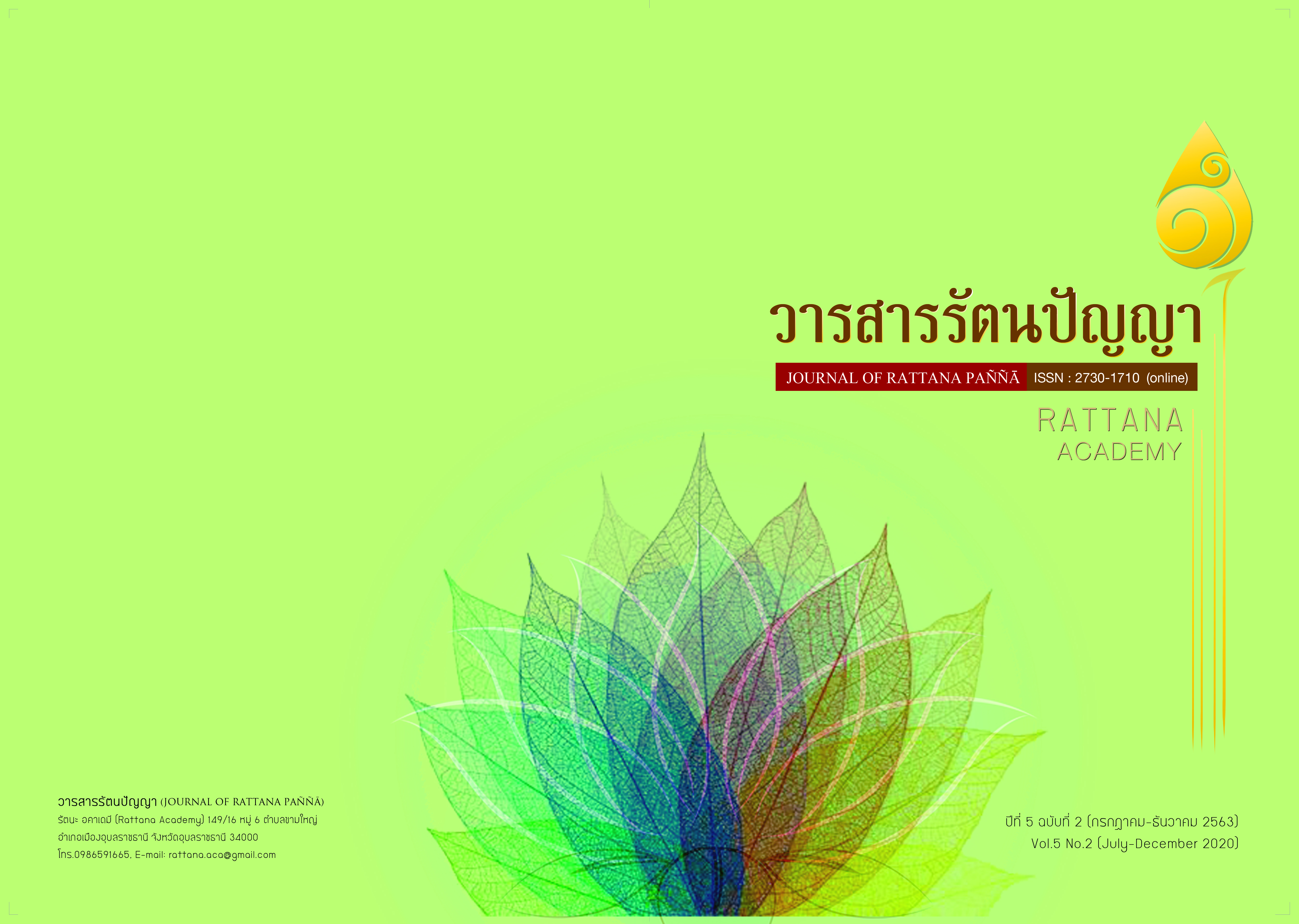The Relationship community development according of the Dhamma Doctrine in Buddhism
Main Article Content
Abstract
Abstact
The research study on "The Relationship community development according of the Dhamma Doctrine in Buddhism" has objects 1) Analyze the principles that affect the development of the Buddhist community relations 2) Integrate the Dhamma principles in Buddhism for the development of community relations in the Buddhist way 3)Propose a model of community development in accordance with Buddhism method of conducting. This research It is a qualitative research by interviewing (Inter-view) and focus group discussion with monks. Buddhism scholars, community leaders and villagers. The study area is Chang Phueak Subdistrict, Suvarnabhumi District and Pho Thong Subdistrict, Phon Thong District, target group of 20 person, using the specific selection method The research instruments were questionnaires, group discussion record form and observation forms Content analysis And presenting descriptive forms
The results of the study revealed that the principles that affect the development of community relations are (1) 4 Bases of social solidarity (2) 4 Path of accomplishment (3) 4 Holy abidings (4) 4 Cultivation (5) 5 Power (6) 6 States of conciliation (7) 7 Conditions of welfare (8) 7 qualities of a good man, Community leaders, villagers and Monks as well as related agencies in Pho Thong Subdistrict and Chang Puak Subdistrict have integrated 4 Bases of social solidarity, 4 Holy abidings, 5 Power, 6 States of conciliation, 7 Conditions of welfare and 7 qualities of a good man in community relations development. Which appears in various activities, including (1) Staying on guard to prevent the cutting of Siamese rosewood (2) Planting forests (3) Getting involved (4) Assisting flood victims (5) Assisting the host in organizing auspicious events and misfortune (6) Academic services to the community forest conservation network (7) Making merit according to 12 Culture. As for the community development in accordance with Buddhism, the forms are (1) Volunteer work (2) service (3) ) Creating (4) check Young seedlings
Article Details
References
ก. ข้อมูลปฐมภูมิ
มหาวิทยาลัยมหาจุฬาลงกรณราชวิทยาลัย. (2535) พระไตรปิฎกบาลี. ฉบับมหาจุฬาเตปิฎกํ, 2500. กรุงเทพมหานคร: โรงพิมพ์มหาจุฬาลงกรณราชวิทยาลัย.
________________พระไตรปิฎกภาษาไทย. (2539) ฉบับมหาจุฬาลงกรณราชวิทยาลัย. กรุงเทพมหานคร: โรงพิมพ์มหาจุฬาลงกรณราชวิทยาลัย.
________________พระไตรปิฎกบาลี. ฉบับมหาจุฬาอฏฺฐกถา.กรุงเทพมหานคร: โรงพิมพ์มหาจุฬาลงกรณราชวิทยาลัย, 2533.
มหามกุฎราชวิทยาลัย. (2534) พระไตรปิฎกพร้อมอรรถกถา แปล ชุด 91 เล่ม. กรุงเทพมหานคร: โรงพิมพ์มหามกุฎราชวิทยาลัย.
ข. ข้อมูลทุติยภูมิ
กีรติ กมลประเทืองกร. (2559) การจัดการชุมชน, ชุมชนเข้มแข็ง, วิถีพุทธ. วารสารบัณฑิตศึกษาปริทรรศน์ บัณฑิตวิทยาลัย วิทยาลัยเทคโนโลยีสยาม.
ไชยรัตน์ เจริญสินโอฬาร. (2543) วาทกรรมการพัฒนา: อำนาจ ความรู้ ความจริง เอกลักษณ์ และความเป็นอื่น. พิมพ์ครั้งที่ 3, กรุงเทพมหานคร: สำนักพิมพ์วิภาษา.
อุทัย ดุลยเกษม และอรศรี งามวิทยาพงศ์. (2540) ระบบการศึกษากับชุมชน: กรอบความคิดและข้อเสนอเพื่อการวิจัย, กรุงเทพมหานคร: แปลนพริ้นติ้ง, 2540.


